Year: October 1968 (LP Feb 1976)
Label: Sunset Records (UK), SLS 50381
Style: Rock, Psychedelic Rock, Pop
Country: Birmingham, England
Time: 28:42
Format: Flac Tracks 16/44,1 kHz
Size: 180 Mb
Как говорила героиня Фаины Раневской в фильме "Золушка": "Эх! жалко королевство маловато. Разгуляться мне негде". Очень нравится этот диск, но звучит к сожалению только 28 минут.
Хотя к бирмингемцам "Idle Race" пресса относилась довольно ласково, эта команда осталась лишь перекидным мостиком из 60-х в 70-е и стартовой площадкой для Джеффа Линна и его "Electric Light Orchestra", а также "Steve Gibbons Band". Предыстория группы уходит корнями в 1959 год, когда на свет появился ансамбль "Billy King And The Nightriders", в котором помимо других музыкантов работали ритм-гитарист Дэйв Притчард и барабанщик Роджер Спенсер. В начале 60-х с приходом к микрофону Майка Тайлера вывеска изменилась на "Mike Sheridan & The Nightriders", а тем временем в составе появились и другие новые игроки, басист Грег Мастерс и лидер-гитарист Рой Вуд. И хотя последний из них являлся ценным приобретением, уже в конце 1965-го Вуд перебрался в "The Move". Следом ретировался разочаровавшийся в шоу-бизнесе Тайлер, но оставшаяся троица продолжила деятельность под флагом "The Nightriders", пригласив на основную гитару Джонни Манна и разделив вокальные партии на всех.
Не успел квартет заключить сделку с "Polydor", как Манн куда-то исчез, а его место занял Джефф Линн. Команда выпустила один сингл, после чего под воздействием "Beatles" решила двинуться в психоделическом направлении. Смена курса повлекла за собой смену названия, и коллектив перекрестили в "The Idyll Race", но это имя быстренько трансформировалось в "The Idle Race".
Все эти пертурбации никак не отразились на продаже пластинок, и контракт с "Polydor" был расторгнут, но к счастью для музыкантов в дело вмешался Вуд.
Сохранивший связи с бывшими партнерами и находящийся вместе с "Move" на волне успеха, Рой помог подписать команду к "Liberty Records". Также он подарил "Idle Race" для дебютного сингла свою песню "Here We Go Round The Lemon Tree", но вскоре группа уже могла обходиться без кураторства, поскольку Линн, начавший активно сочинять песни, захватил лидерство, и уже на следующем миньоне оказалось сразу две джеффовских вещи, "Imposters Of Life's Magazine" и "Sitting In My Tree". Под одобрительный гул прессы коллектив продолжил штамповать синглы, которые на фоне позитивных рецензий почемуто расходились довольно вяло. Как бы то ни было, к осени 1968-го команда подготовила и полнометражный альбом, в котором сочные попсовые мелодии были сдобрены психоделикой и смешаны с британским мюзик-холлом.
Реакция на "The Birthday Party" ничем не отличалась от реакции на миньоны, но вживую группа пользовалась неплохим спросом. Она выступала на одних площадках со "Spencer Davis Group", "The Who", "Small Faces", "Pink Floyd", "The Moody Blues", причем на концертах представала перед публикой с более жестким саундом и включала в сет-лист каверы "Steppenwolf", Хендрикса и "The Doors".
В феврале 1969-го Линну предложили место в "The Move", однако гитарист отказался, поскольку еще не оставлял надежду вывести свою команду к успеху. Джефф взялся продюсировать второй альбом "Idle Race" и постарался сделать звучание более мэйнстримовым, но это не помогло.
В коммерческом плане работа вновь оказалась провальной, и когда Вуд сделал Линну повторный ангажемент, тот ответил согласием. В результате карьера "Move" вышла на новый виток и дала старт "Electric Light Orchestra", тогда как Притчард, Спенсер и Мастерс попытались возместить потерю с помощью Майка Хопкинса (вокал, гитара) и Ричи Уокера (вокал). Начав с каверов "Mungo Jerry" и "Hotlegs", обновленный состав все же сорвал кое-какие аплодисменты, но дальше все опять пошло не так, как хотелось.
Изданный в 1971-м альбом "Time Is" местами был похож то на "Doors", то на "T. Rex", то на "Byrds", а вот с ранними "Idle Race" имел мало общего. Вскоре после релиза команду накрыла волна кадровых перестановок. Какое-то время всем верховодил единственный оставшийся из старичков Мастерс, но потом ушел и он, а из последнего состава сформировались "Steve Gibbons Band".
(rockfaces.ru/i/idlerace.htm) Last update 02.12.19
The Idle Race were an English cult rock group from Birmingham in the late 1960s and early '70s. In addition to being the springboard for Jeff Lynne, the band holds a place of significance in British Midlands' rock history as a link between Electric Light Orchestra, The Move, the Steve Gibbons Band and Mike Sheridan and The Nightriders.
The core of the group, Nightriders rhythm guitarist Dave Pritchard, bass guitarist Greg Masters and drummer Roger Spencer, was relatively unchanged from 1959 until February 1972. The band went through several incarnations, lead guitarists and lead singers: first Billy King and later, more successfully, with Mike Sheridan, with whom they first rose to prominence and, in 1964, to a record deal with EMI.
While Mike Sheridan and The Nightriders failed to crack the charts, the band's lineup during this period included a young lead guitarist and composer named Roy Wood, whose first commercial song "Make Them Understand," appeared on one of the band's B-sides in 1965.
Wood jumped ship to join the then Brum 'supergroup' The Move in December 1965. Sheridan left shortly thereafter.
The Nightriders soldiered on with a new lead guitarist, Johnny Mann, for a few months. When they placed an advert in May 1966 for a younger replacement, the winning applicant was Lynne, then a relatively unknown guitar prodigy from the Birmingham district of Shard End. The Nightriders recorded one single for Polydor, "It's Only The Dog/Your Friend," released in November 1966 with Lynne on lead guitar. Spencer sang lead on the former; the latter was written and sung by Pritchard.
Eager to showcase Lynne's vocal and guitar skills as well as his growing cache of psychedelic songs, the group changed its name, first to Idyll Race, then Idle Race. Wood, now a national superstar as the Move stormed the charts, helped arrange for his old bandmates a partnership with pop producers Eddie Offord and Gerald Chevin. In 1967, The Idle Race were the first major rock signing by the new British arm of Liberty Records (which would soon merge with United Artists).
The group were well-received by the music press for their melodies, whimsical lyrics, and inventive production. They often appeared on the same bill with such bands as The Spencer Davis Group, The Who, The Small Faces, Pink Floyd, The Moody Blues, Status Quo, Tyrannosaurus Rex, Yes, Free, and the Move.
During this period, Idle Race was also, as one member later termed it, a very "schizophrenic" band. While their records were awash in pop hooks, acid backdrops and lilting harmonies, they were a much heavier act in a live setting. Lynne's early trademark around the clubs and colleges was his ability to coax an unusual "violin" sound out of his guitar, while Masters would occasionally take a bow to his Hofner bass. In addition to original material, their set list included extended covers of Steppenwolf's "Born to Be Wild," The Jimi Hendrix Experience's "Purple Haze," Moby Grape's "Hey Grandma," The Lemon Pipers' "Blueberry Blue," The Doors' "Love Me Two Times," and an electric version of "Debora" by Tyrannosaurus Rex.
Influential BBC disc jockeys such as John Peel and Kenny Everett were big boosters of the band. But despite heaps of critical respect and famous fans such as The Beatles and Marc Bolan, Idle Race failed to catch fire with the public.
Bad luck sabotaged efforts from the start. Their debut single on Liberty, a cover of Wood's "Here We Go 'Round The Lemon Tree," was scheduled for release and heavily promoted in September 1967. When the Move's version began getting national in airplay around England as the B-side of the hit "Flowers In The Rain," Liberty abruptly pulled the single in the UK (although it was still released by Liberty in the US). The record company replaced it with Lynne's crunching "Impostors of Life's Magazine" in October. With no promotion, "Impostors" never got out of the starting gate, drawing praise but little chart buzz.
"The Skeleton And The Roundabout" (February 1968) and "The End of the Road" (June 1968) suffered similar fates. Work continued throughout the year on the Idle Race's debut album, the band commuting in from Birmingham to London on Sundays, when they were granted free studio time at Advision. The resulting "The Birthday Party" was released in October of that year to strong reviews but tepid sales.
Lynne and Wood's mutual respect and friendship deepened. The demo for the Move hit "Blackberry Way" was recorded in Lynne's front room. "Way" borrowed motifs from the Idle Race; the chorus of Lynne's 1969 rocker "Days of the Broken Arrows" lifted part of a riff from the Move's "Wild Tiger Woman." Wood and Lynne spoke often of working together on a project that would integrate classical instruments within a pop/rock idiom.
Lynne received an offer to replace Trevor Burton in the Move in February 1969 but declined with hopes of piloting The Idle Race onto the hit parade -- and producing the band's second LP for Liberty.
The self-titled "Idle Race" was eventually released in November 1969. When the two Lynne-penned, Lynne-produced singles that preceded the LP, "Days of the Broken Arrows" (April 1969) and "Come With Me" (July 1969) also failed to chart, their composer's frustration mounted.
Despite more good reviews, "Idle Race," the first LP ever produced by Lynne and a much tamer offering than its predecessor, flopped as well.
In January 1970, Lynne accepted Wood's second offer to join the Move, on condition that they would retire the band and concentrate on a new venture, The Electric Light Orchestra.
Lynne made two albums ("Looking On" and "Message From The Country") and a handful of superb singles with the Move, including the first version of "Do Ya", as work on the first ELO album continued in the studio throughout 1970 and '71. The Move, now comprising just Wood, Lynne and drummer Bev Bevan, ceased touring in 1970 and adopted its ELO alter ego permanently in 1972.
Meanwhile, Mike Hopkins (guitar) and Dave Walker (vocals) were hired to replace Lynne in The Idle Race. A cover of Mungo Jerry's "In The Summertime" on Liberty in 1970 finally got them into the top 10 -- in Argentina. A cover of Hotlegs' "Neanderthal Man" didn't fare as well.
In 1971 the band produced their final album, "Time Is" for Regal Zonophone. Pritchard and Spencer, later to become comic "Ollie" Spencer, left shortly thereafter.
After Masters quit the group in 1972, the remnants became the Steve Gibbons Band.
(en-academic.com/dic.nsf/enwiki/212824)
01. A1 Skeleton and the Roundabout (02:19)
02. A2 Happy Birthday (00:23)
03. A3 The Birthday (02:58)
04. A4 I Like My Toys (02:12)
05. A5 Morning Sunshine (01:50)
06. A6 Follow Me Follow (02:49)
07. A7 Sitting in My Tree (01:53)
08. B1 On With the Show (02:22)
09. B2 Lucky Man (02:38)
10. B3 Mrs. Ward (02:15)
11. B4 Pie in the Sky (02:27)
12. B5 The Lady Who Said She Could Fly (02:22)
13. B6 End of the Road (02:09)
![The Idle Race - The Birthday Party [Vinyl Rip] (1968) The Idle Race - The Birthday Party [Vinyl Rip] (1968)](https://thumbs4.imagebam.com/0e/b8/68/MEASST8_t.jpg)
![The Idle Race - The Birthday Party [Vinyl Rip] (1968) The Idle Race - The Birthday Party [Vinyl Rip] (1968)](https://thumbs4.imagebam.com/99/af/1e/MEASSTA_t.jpg)
![The Idle Race - The Birthday Party [Vinyl Rip] (1968) The Idle Race - The Birthday Party [Vinyl Rip] (1968)](https://thumbs4.imagebam.com/51/f7/ae/MEASSTC_t.jpg)
При желании можно посмотреть все мои публикации на сайте. Приятного прослушивания.
Жмём и смотрим (Click to see all of my posts)!KatFile
GigaPeta
TurboBit
Новость отредактировал LynyrdSkynyrd - 24-05-2022, 22:24
Причина: Обновил ссылки и Описание
![The Idle Race - The Birthday Party [Vinyl Rip] (1968) The Idle Race - The Birthday Party [Vinyl Rip] (1968)](https://i.ibb.co/dMyb8nB/Idle-Race68-Birthday-Party-500-LP.jpg)
![The Idle Race - The Birthday Party [Vinyl Rip] (1968) The Idle Race - The Birthday Party [Vinyl Rip] (1968)](https://thumbs4.imagebam.com/0e/b8/68/MEASST8_t.jpg)
![The Idle Race - The Birthday Party [Vinyl Rip] (1968) The Idle Race - The Birthday Party [Vinyl Rip] (1968)](https://thumbs4.imagebam.com/99/af/1e/MEASSTA_t.jpg)
![The Idle Race - The Birthday Party [Vinyl Rip] (1968) The Idle Race - The Birthday Party [Vinyl Rip] (1968)](https://thumbs4.imagebam.com/51/f7/ae/MEASSTC_t.jpg)




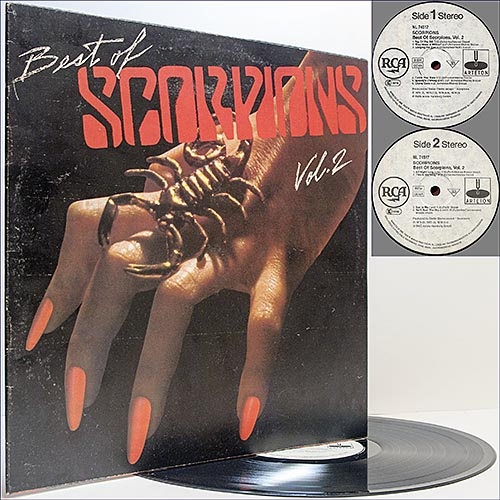
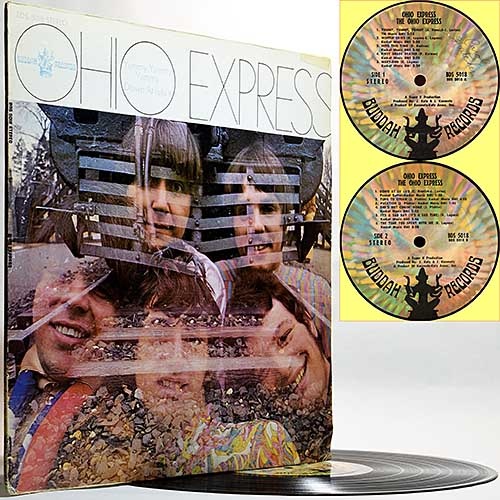

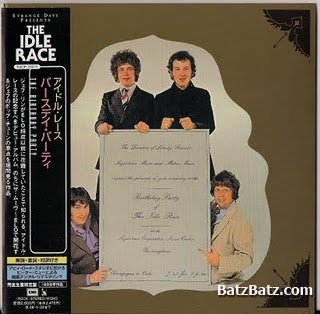
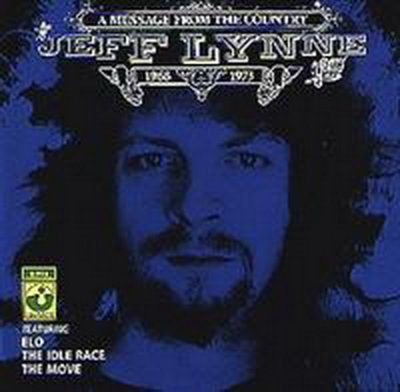
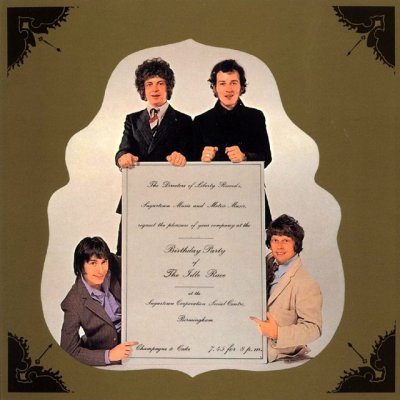
2 пїЅпїЅпїЅпїЅпїЅпїЅпїЅпїЅпїЅпїЅпїЅ